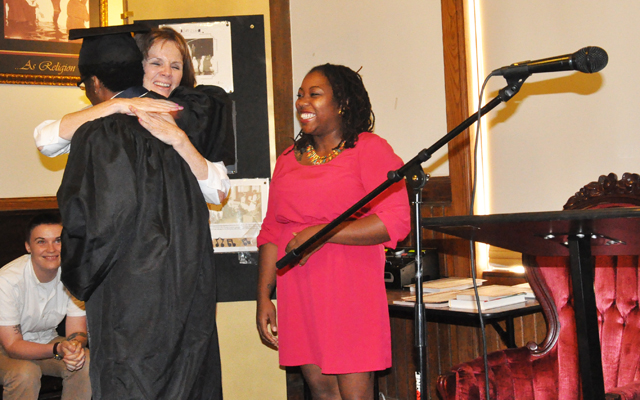
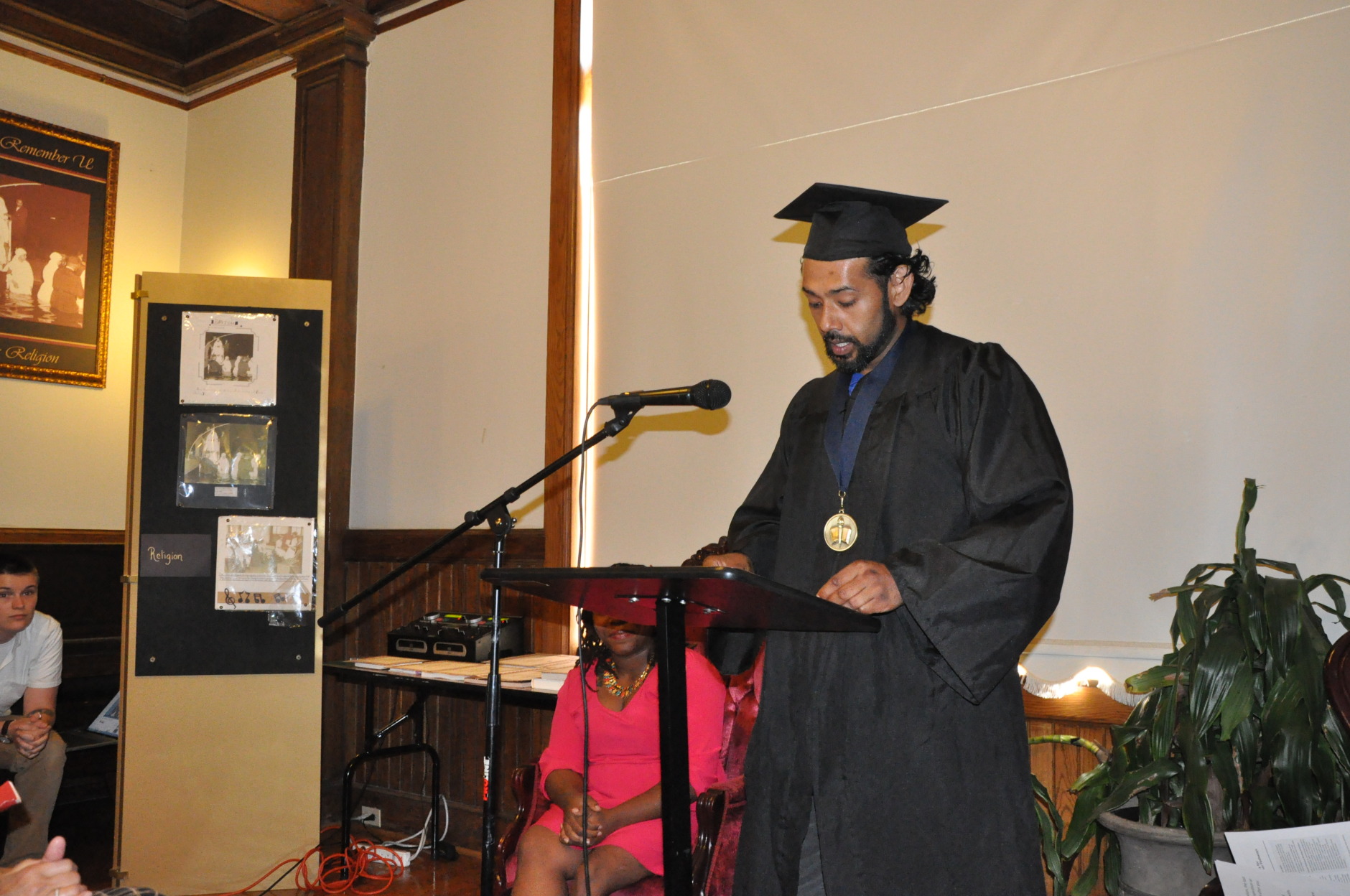
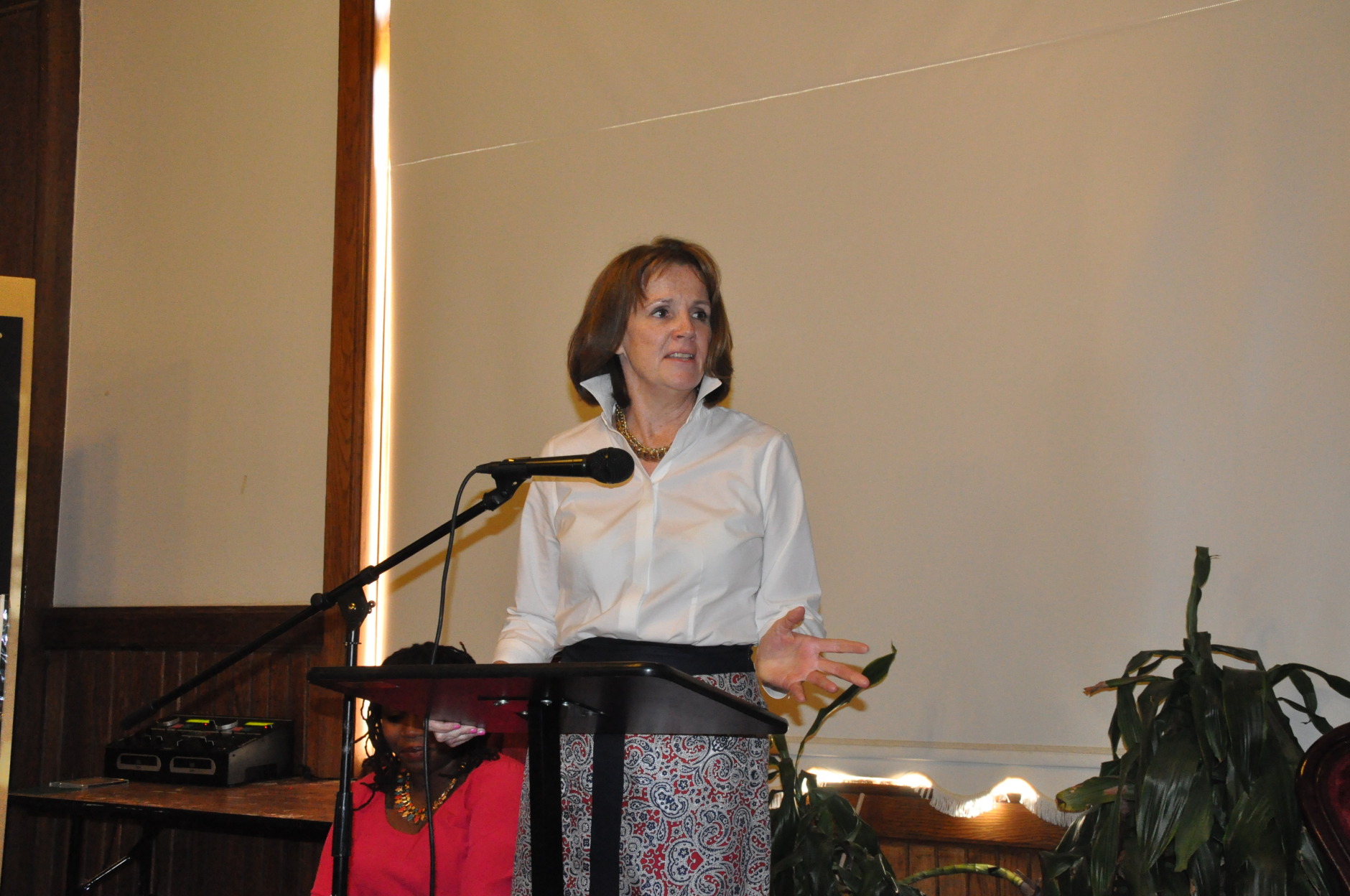

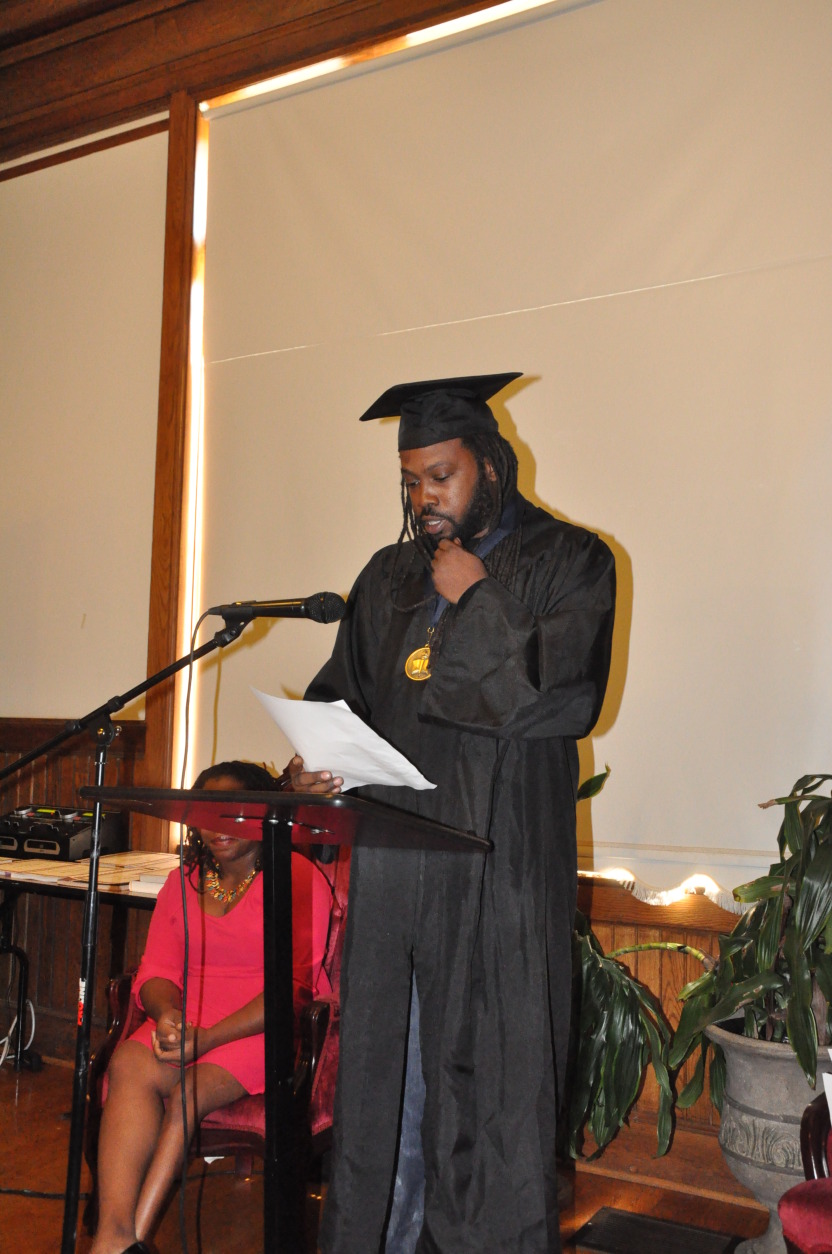
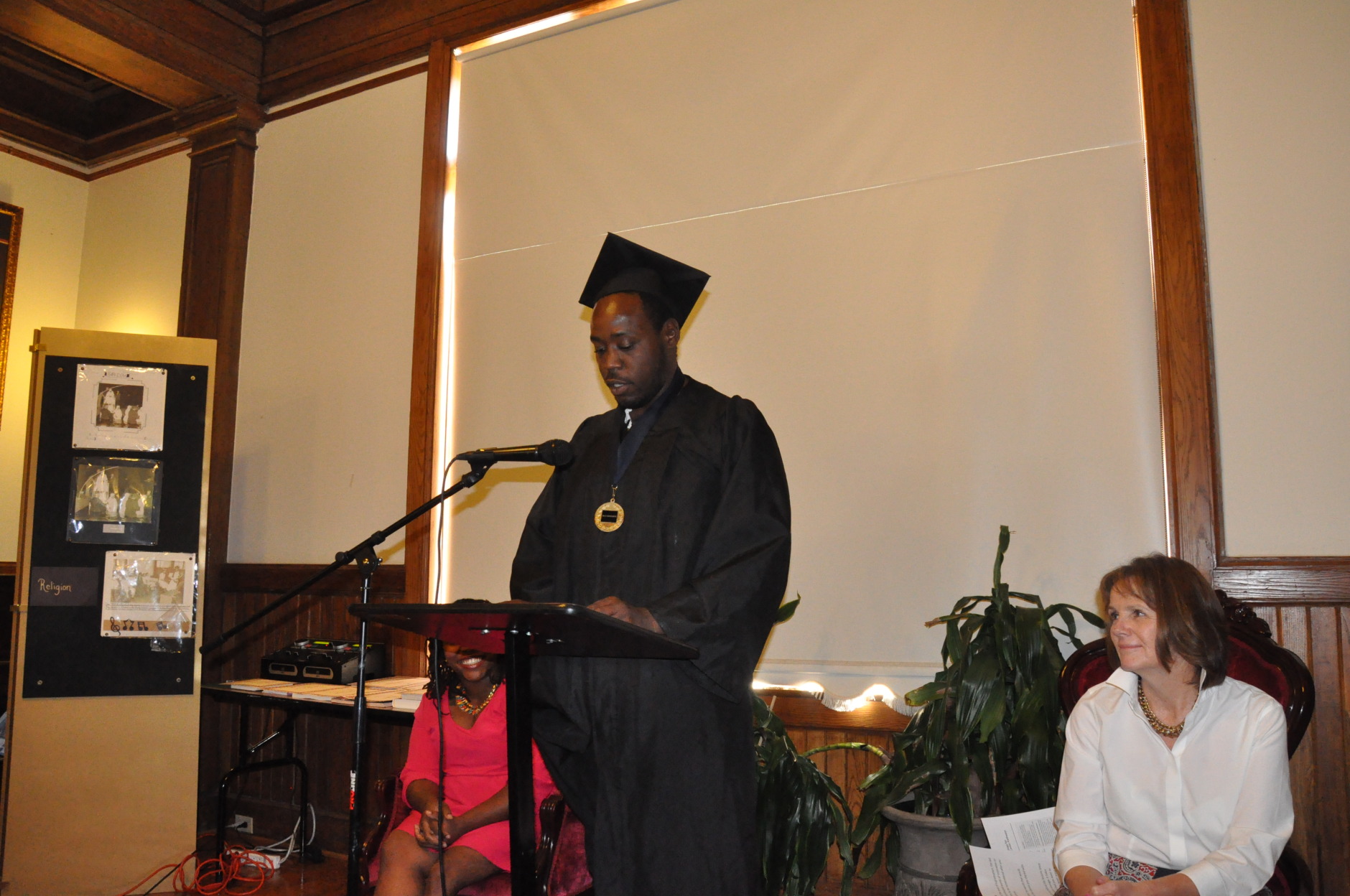
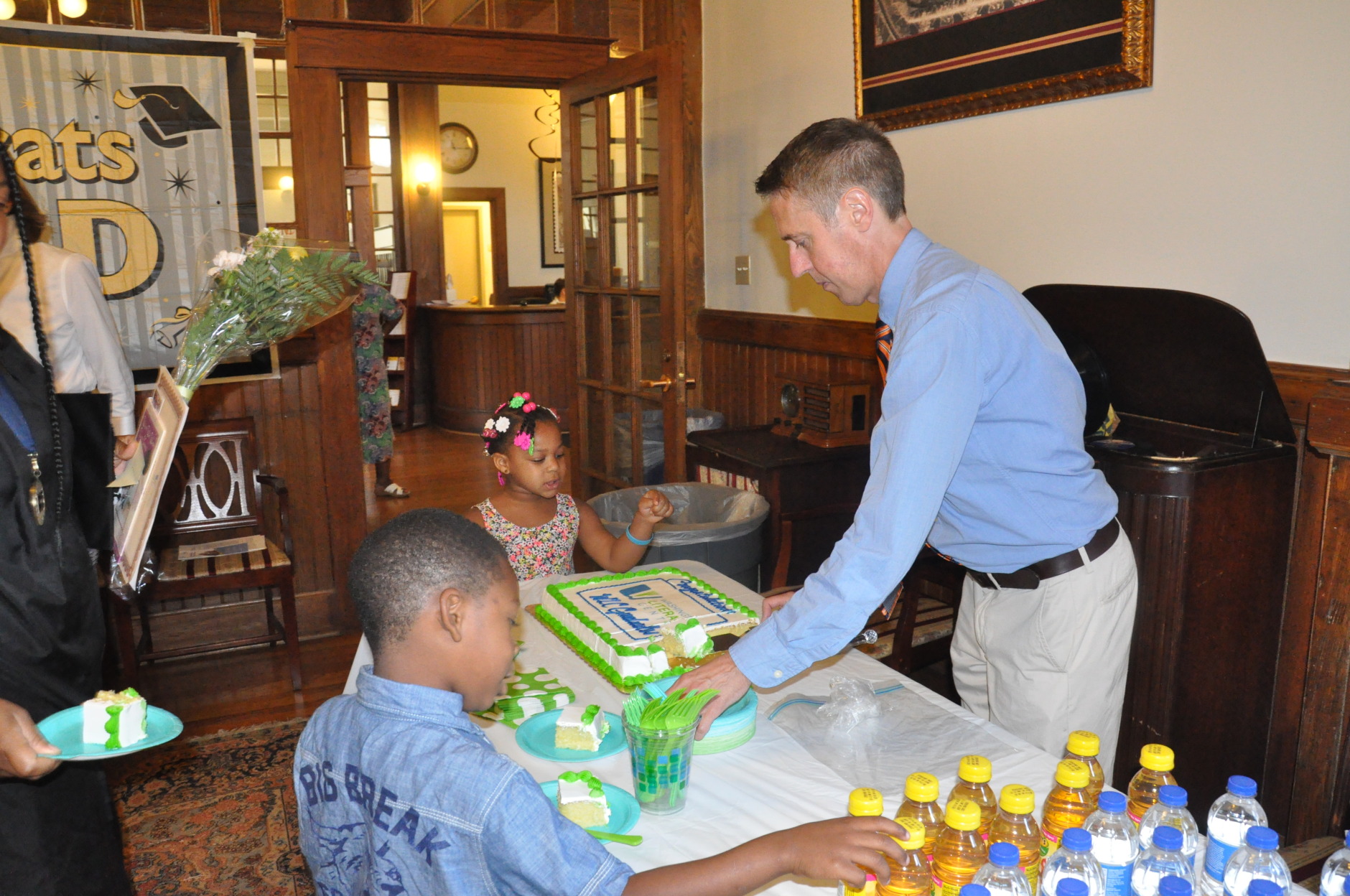
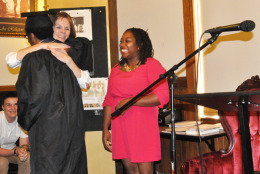
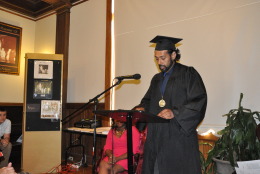
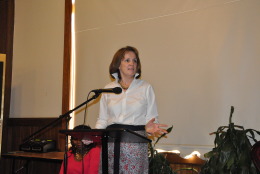

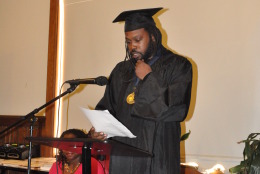
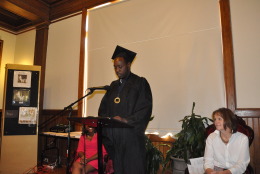

WASHINGTON — “Today is one of the greatest days of my life; today is one of my greatest milestones.”
Sterling Holton, 34, stood at a podium and addressed a small crowd on Monday at the Thurgood Marshall Center in Northwest D.C. He was one of eight graduates of the Washington Literacy Center’s summer graduation ceremony.
“From [when I started the program], my confidence grew, and I knew somebody really cared,” Holton says. “Now, I’ll be taking one day at a time.”
One year ago, Holton was one of the roughly 48 million adults in the U.S., and 90,000 adults in D.C., to read below a fifth-grade level. That is no longer the case.
Holton was told he needed to improve his reading skills while working toward his GED. He contacted the Washington Literacy Center, a nonprofit organization that works to teach and improve literacy levels among District adults, and after meeting the staff and observing a class, he signed up for the program.
“And it was all uphill from there,” he says.
Gaining Confidence and Skills Later in Life
Terry Algire, executive director of the Washington Literacy Center, says the organization teaches about 100 adults to read each year. Algire says about 10 percent of the students that come to WLC have a high school diploma; 30 to 35 percent completed 10 to 12 years of school.
“For the majority of them, they didn’t drop out; they hung in there,” Algire says. “In those early years, when you’re learning the process of reading, it didn’t click for them, so then for the remaining years, they were constantly behind, and the gap continued to grow.”
Classes, which meet four times a week for two hours, are taught using the Wilson Reading System, which embraces a multi-sensory approach to decoding words.
Algire says students who complete the programs at WLC leave with improved reading skills, but more importantly, they leave with “a great deal of confidence.”
They are able to read job applications, school forms, medical paperwork, prescription information, rental applications and food labels.
“Once you start to read, you start to be able to engage in the world in which you live,” Algire says.
Confidence is one thing Elvis Zaldivar, 34, says he’s gained. Before starting literacy-improvement classes, he says he felt ashamed about not being able to read.
“I always had a problem reading and writing, and that’s depressing,” Zaldivar says. “You try to read a newspaper or a book and







